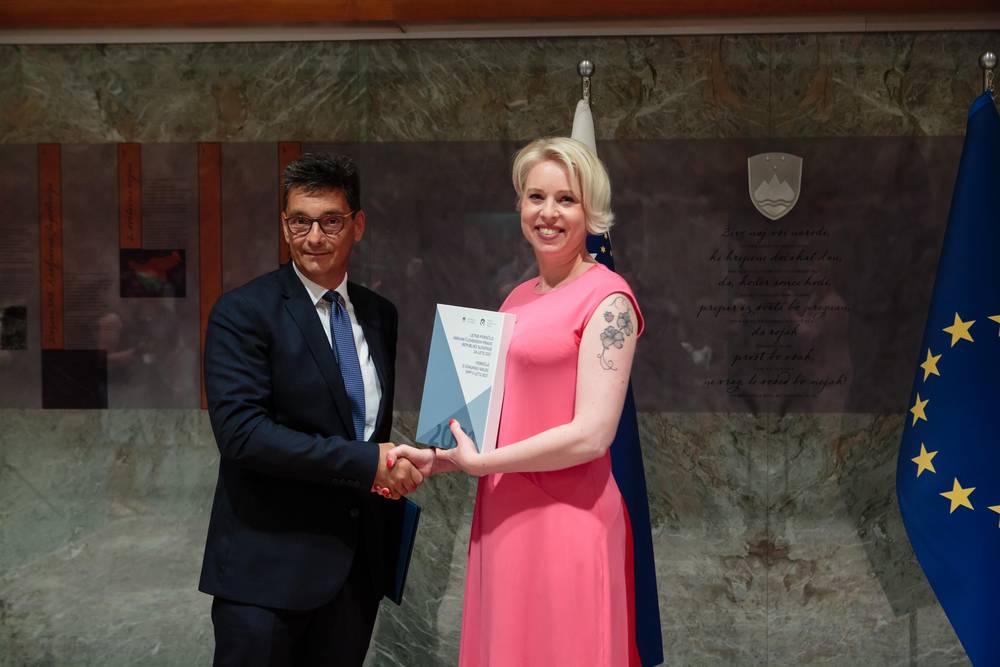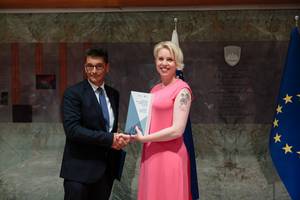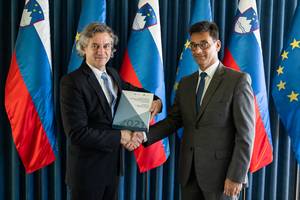On 13 June 2022, the Human Rights Ombudsman Peter Svetina presented to the Speaker of the National Assembly of the Republic of Slovenia Urška Klakočar Zupančič the 27th annual report of the Human Rights Ombudsman and the 14th report of the National Preventive Mechanism for 2021. In the new report, the Ombudsman addressed 86 new recommendations to various bodies. "We made fewer new recommendations this year than last year, but there is still a lot of work to be done by the competent authorities and institutions. Many of the previous recommendations by the Ombudsman have not yet been implemented, which is unacceptable. The people's rights defined in the relevant acts presuppose the obligation of the state to exercise them. The Constitution and laws impose a mandate on the Ombudsman to supervise their implementation. It does this in accordance with the highest international standards, which has been confirmed by evaluators as part of the accreditation procedure for a national institution for human rights with A status in accordance with the Paris Principles. The awarding of this status in 2021 is a signal to the Slovenian state that respecting the Ombudsman as a national institution for human rights and its strengthening is the right path. This is why I expect this signal to be perceived and demonstrated in practice. If the authorities follow the Ombudsman's recommendations, it means that they are doing good for the people. After all, they were elected by them and they are expected to create a society in which rights are respected," Ombudsman Svetina noted.
The work of the institution of the Ombudsman in 2021 was strongly marked by the coronavirus pandemic. "We processed 6,863 cases, which is a third more than in the pre-Covid period, and this is a record number of cases in the time since I've been running the institution. This shows that the institution of the Ombudsman is recognised in society, as an increasing number of people are turning to it. Last year we identified 276 violations of human rights, fundamental freedoms and other irregularities. Although I'm very happy that their number dropped by 40% compared to 2020, any violation found is inadmissible and too many," said Ombudsman Svetina.
As he said in a press statement after the meeting with the Speaker of the National Assembly, in 2021 state bodies, local community bodies and holders of public authority most often violated the principle of good governance, followed by violations of equality before the law, disability rights and equal protection of rights. The areas covered by the Ministry of Labour, the Family, Social Affairs and Equal Opportunities stand out in terms of violations, with as many as 63 recorded in 2021. These are followed by the areas covered by of the Ministry of the Environment and Spatial Planning (25), which last year failed to implement any of the Ombudsman's recommendations from the 2020 Annual Report. The Ombudsman also detected many violations in the areas covered by the Ministry of the Interior and the Ministry of Health (18 each).
Svetina also notes that the cracks that have been showing in the field of human rights for years have deepened in the last two pandemic years, and that no one has tackled them, although the institution of the Ombudsman has been warning about them. "Certain areas have been neglected for the last two years, that is a fact, and many of the most vulnerable among us have paid a high price, so we must do everything we can to stop this trend. The attitude of the state towards human rights and the most vulnerable groups of the population is the best mirror of society. I would like to see us finally be guided by our actions and have the decision-makers implement our recommendations as soon as possible for the benefit of all individuals," the Ombudsman said as he presented the annual reports.
Among other things, he praised the progress made in the implementation of judgements of the European Court of Human Rights, as "only" five remain unimplemented. The situation is sad regarding the implementation of decisions of the Constitutional Court of the Republic of Slovenia (US), with the number of unimplemented decisions constantly growing in recent years. At the end of 2021, there were 23 declaratory decisions of the US that were yet to be implemented," the Ombudsman said on the occasion, noting only a part of the findings covered in the 2021 annual report. In 2021, an advocate of children's rights was assigned to almost 100 children, which indicates that this institute is urgently needed in society. Despite the pandemic-related restrictions, the Ombudsman continued to carry out the tasks and powers of the National Preventive Mechanism (DPM) in 2021. It visited 60 places of detention and issued as many as501 recommendations in the process, which is almost 200 recommendations more than the year before. He also presented this report to the Speaker of the National Assembly of the Republic of Slovenia Urška Klakočar Zupančič.
The Ombudsman places great importance on the protection of the environment, which is why the 2021 annual reports were published for the first time in full only in an electronic PDF version, available on the website www.varuh-rs.si and www.ombudsman.si. "With such an approach, we want to give a clear signal that individual institutions and society as a whole need to be as sustainability-oriented as possible - not only in words, but also in actions," noted the Human Rights Ombudsman Peter Svetina.
On 14 June 2022, the Human Rights Ombudsman Peter Svetina also presented the 27th annual report of the Human Rights Ombudsman and the 14th report of the National Preventive Mechanism to the President of the Republic of Slovenia, Borut Pahor and the Prime Minister of the Republic of Slovenia, Robert Golob.







